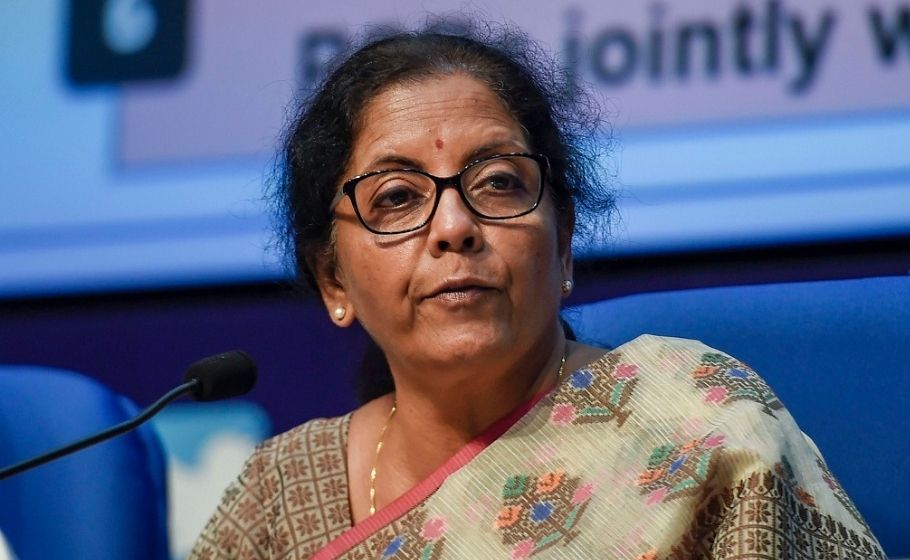
Non-BJP states prepare to pressurise Centre to extend GST compensation by 5 years

The Centre is under renewed pressure from non-BJP states to extend compensation for losses from Goods and Services Tax (GST) beyond the May 2022 deadline.
Last month, the Supreme Court ruled that recommendations of the GST Council are not binding on the states, thus giving voice to the simmering demand for extending the deadline for providing compensation for another five years. The Centre believes that doing so belies the very idea of one nation, one tax and would threaten the existence of one of the most important tax reforms this country has seen since Independence.
The Centre has cleared the entire GST compensation payable till May 30, 2022 by releasing Rs 86,912 crore to states. Of this, Rs 25,000 crore is released from the GST compensation fund and the balance Rs 61,912 crore is being released by the Centre from its own resources pending collection of cess.
The GST was introduced in the country with effect from July 1, 2017 and states were assured of compensation for the loss of any revenue arising on account of implementation of GST for a period of five years.
For providing compensation to states, cess is being levied on certain goods and the amount of cess collected is credited to compensation fund.
The states’ protected revenue has been growing at 14% compounded growth whereas the cess collection did not increase in the same proportion. COVID further increased the gap between protected revenue and the actual revenue receipt, including reduction in cess collection.
In order to meet the resource gap of the states due to short release of compensation, the Centre has borrowed and released Rs 1.1 lakh crore in 2020-21 and Rs 1.59 lakh crore in 2021-22 as back-to-back loan to meet a part of the shortfall in cess collection.
States like Kerala, Chhattisgarh and West Bengal aren’t happy with the Centre’s decision to not extend the GST compensation by five more years.
Former West Bengal minister Amit Mitra has written to Union Finance Minister Nirmala Sitharaman, urging her to continue with the Goods and Services Tax (GST) compensation to states for another 3-5 years after this month.
Mitra, the principal chief advisor to Chief Minister Mamata Banerjee and the state finance department, said the extension of the compensatory arrangement will provide a big relief to the states.
“We note with dismay and ominous signs that the Centre has decided to withdraw the goods and services tax (GST) compensation to the states from July 2022. Such a decision, if taken, is completely contrary to what was envisaged at the time of adoption of GST,” Mitra wrote in the two-page letter on Monday.
A few months back, Chhattisgarh Chief Minister Bhupesh Baghel wrote to his counterparts in 17 other states, including five ruled by the BJP and AAP-governed Delhi, seeking their support in a bid to convince the Centre to extend the period of compensation mechanism under the Goods and Services Tax (GST) for five years beyond June 2022.
The SC ruling has emboldened the states in demanding a better deal ahead of the GST Council meet. Baghel said the Centre’s move will cause a huge loss of revenue to the manufacturing states. He said his government had requested the Centre to continue with the GST compensation or make an alternate arrangement. If the GST compensation is not continued beyond June 2022, then Chhattisgarh is expected to face a revenue loss of approximately Rs 5,000 crore in the upcoming financial year, Baghel claimed.
Also read: US Fed hikes interest rates sharply to curb high inflation; move to hit jobs
States, mostly non-BJP ruled ones, think that after the introduction of the GST regime, the autonomy of states on tax policy has significantly reduced. Therefore, to recover from the adverse impact of COVID-19 on the economy and till the time actual benefits of the GST regime are realised, states with similar interests are trying to join hands and pressurise the Union government to continue the current mechanism of compensation for at least next five years, or devise an alternate temporary mechanism to compensate for the shortfall in revenue.
As per media reports, states of Kerala, West Bengal and Chhattisgarh have decided to raise the topic at the GST Council meeting to be held later in June. The governments of Bihar and Tamil Nadu too are likely to support the demand.
Chhattisgarh finance minister T S Singh Deo said the states are struggling to manage their finances since COVID happened. He warned that if the GST Council does not heed to states’ demand, then they would be forced to look for other sources of revenue, by which he meant to say that they may levy local cess – a dent on the GST’s central idea of ‘one nation one tax’.
Kerala finance minister K N Balagopal said the SC ruling will give more power to states which was curtailed by the GST regime. He said Kerala would demand extension of GST compensation for another five years.


